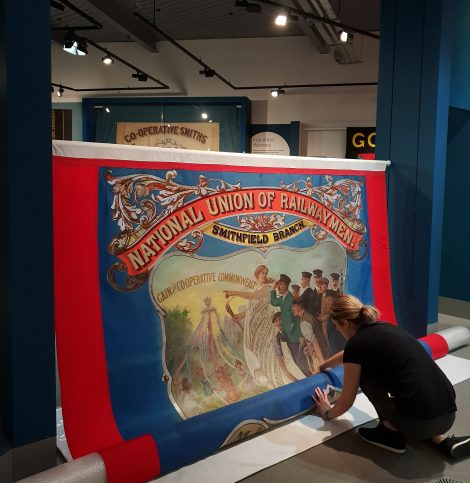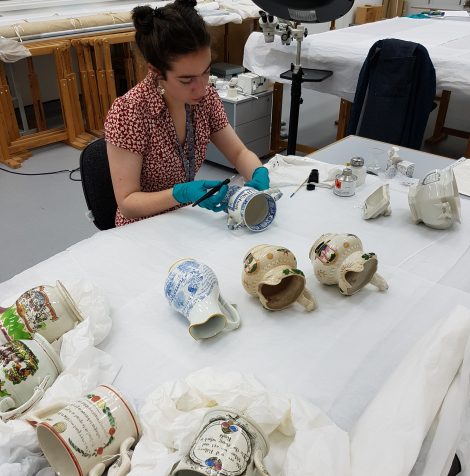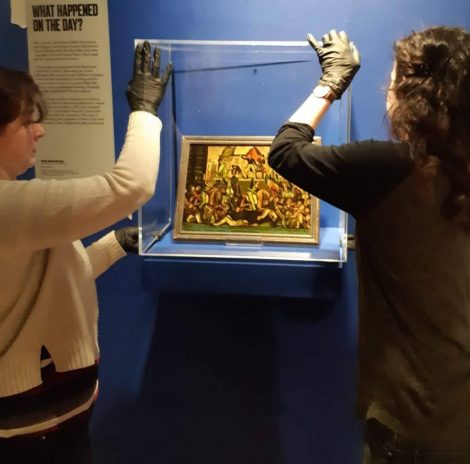The museum holds an eclectic and colourful, historic and contemporary collection that features banners, badges, posters, artwork, cartoons, placards, personal items and more, spanning four centuries of ideas worth fighting for.
PHM has over 450 historic and contemporary banners including the largest and most important collection of trade union and political banners in the world and the world’s oldest trade union banner, the 1821 Tin Plate Workers Society banner.
Although the banners in our collection may have once been seen as ‘working’ objects, many are now very fragile and can be quite challenging to care for.
Textiles are vulnerable objects as they can be damaged by light, dust, extremes in environmental conditions and even hanging when on display. For this reason many of the banners in the galleries are changed in our annual Banner Exhibition; this is part of our preventative conservation strategy for the collection. Each banner is carefully lowered and checked for damage before being packed away. Banners selected for display must be thoroughly checked and conserved before they are ready to install.
Not only does this give us the opportunity to exhibit more of our collection around PHM’s annual programme theme, but we also conserve at least one banner every year that has never been on display to the public before.

PHM’s collection is also made up of a wide variety of objects from our political history such as posters; placards; ceramics; and even furniture. These are often everyday items that were used in now-extraordinary moments in history, and include objects such as Michael Foot’s broken cane, fixed with parcel tape; a plastic miners’ strike collection tub with adhesive stickers; the Polyurethane Spitting Image puppet of Harold Wilson; election balloons from 1995 and a placard from the Women’s Marches in 2017, decorated with felt-tip pen.
These objects are made from a wide variety of different materials, each requiring a specific type of conservation care for both storage and display.
If you believe in our work, and want to help us grow our collection, you can support us by becoming a Radical Friend and giving just £3 a month.

We also have a core involvement in the museum’s exhibitions and events programme; specifically the changing exhibition. These exhibitions are always different, and we work closely with the wider team to select objects from the collection that illustrate each chosen theme.
We provide advice on the design of each exhibition to ensure the safety of the objects whilst on display; this can also involve making the mounts for objects and the framing for paper and prints. The practical conservation that we undertake for exhibitions is minimally interventive. This means that it is enough to prevent damage occurring while on display, but is not intended to make the object look like new. This is part of our ethical framework as conservators.
